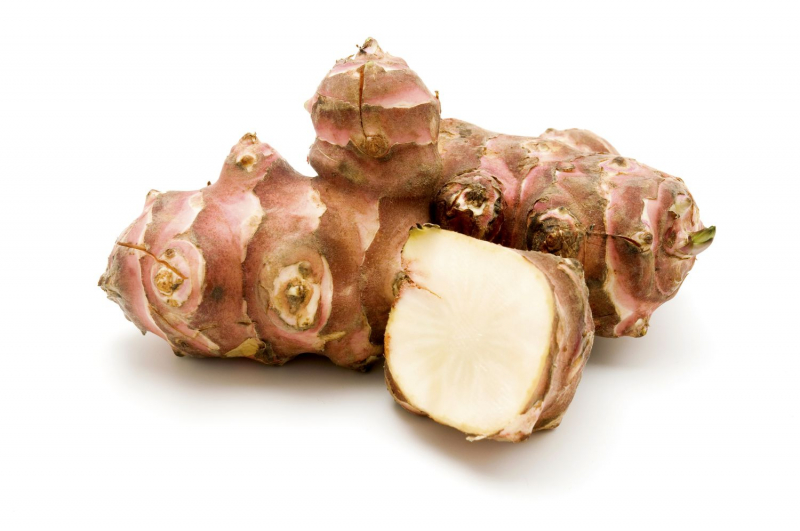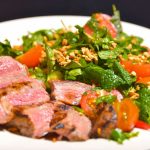A Guide to Buying, Cooking, and Storing Jerusalem Artichokes
Another name for Jerusalem artichokes is sunchoke, a moniker that proves more common in the United States. No matter what it’s called, this sweet, crunchy root vegetable can add a fun twist to meals and substitute for other tubers, such as potatoes or yams. It’s got a bit of a water chestnut bite to it but with more of a starchy taste, despite the fact it has no starch in it.
What Are Jerusalem Artichokes?
Contrary to the name, a Jerusalem artichoke is not a true artichoke though both are in the aster family. Actually this plant—also called a sunchoke, earth apple, and sunroot—is the part of the garden sunflower (not to be confused with the large sunflowers that produce the seeds people snack on) called a rhizome, which is found underground and stores the flower's nutrients. The Jerusalem artichoke is also not from the Middle East or anywhere near Jerusalem, it's actually a native species to North America.
Native Americans harvested the Jerusalem artichoke to eat, and because it traveled and kept well, traded it among the tribes, and eventually, the settlers. Through this distribution, the Jerusalem artichoke was planted and harvested all over the country. When the Europeans came, they also took to the ingredient, spiriting it back home. Because the Jerusalem artichoke both tasted good and was easy to grow, it became popular in Europe, especially in France, where it's still a common menu item today. The name Jerusalem artichoke probably came from the original settlers—the Italians to be exact—who called the plant girasole, Italian for sunflower. Over time the name got butchered by others until it became Jerusalem artichoke.
What To Do With Jerusalem Artichokes
One lovely thing about these tubers is they can be used in many of the same ways potatoes can, but don’t have the same heavy starch to them (or any starch for that matter). Boil and mash the Jerusalem artichoke with butter and salt for a healthy side dish; or roast with olive oil until the skin gets tight and the insides creamy. Slicing thin and frying can produce a sweet and crunchy chip, though eating them raw is also an option. Try substituting the Jerusalem artichoke for potatoes in a breakfast hash, slice into coins for a cheesy gratin, or puree into a creamy soup. The only trick in working with this ingredient is scrubbing them clean and not worrying about all the irregularities—the knobs and skin are just part of the tuber and should remain.
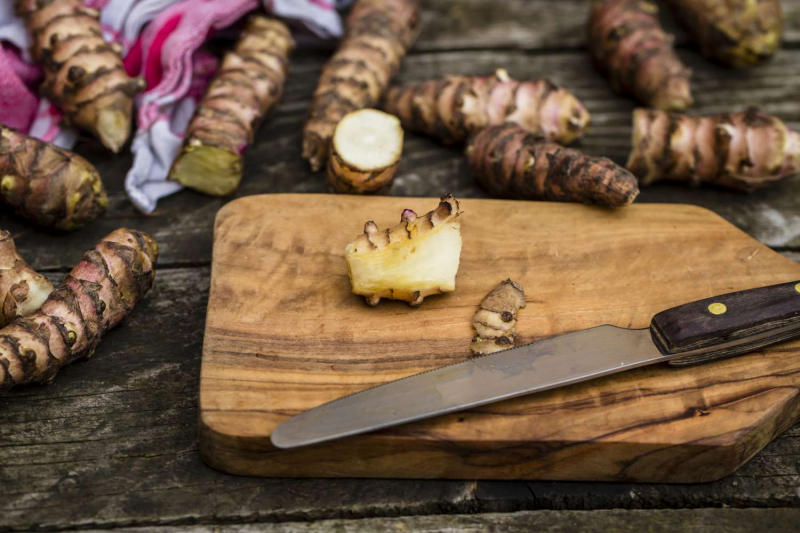
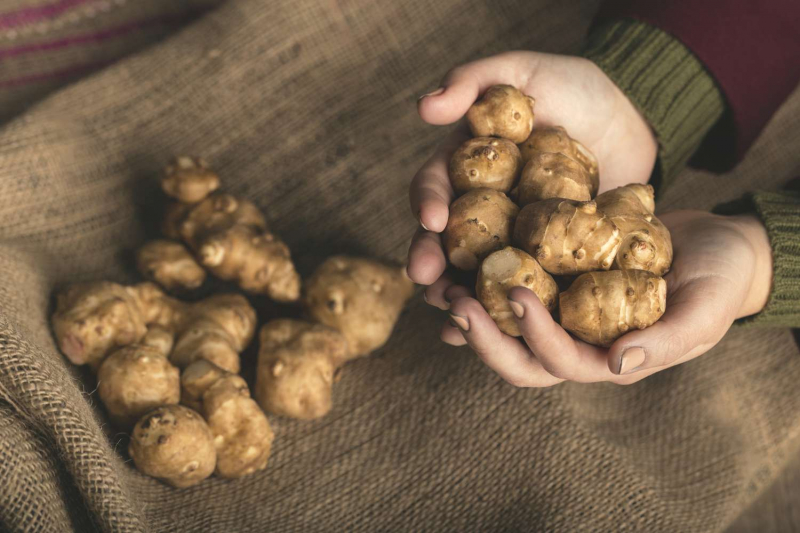
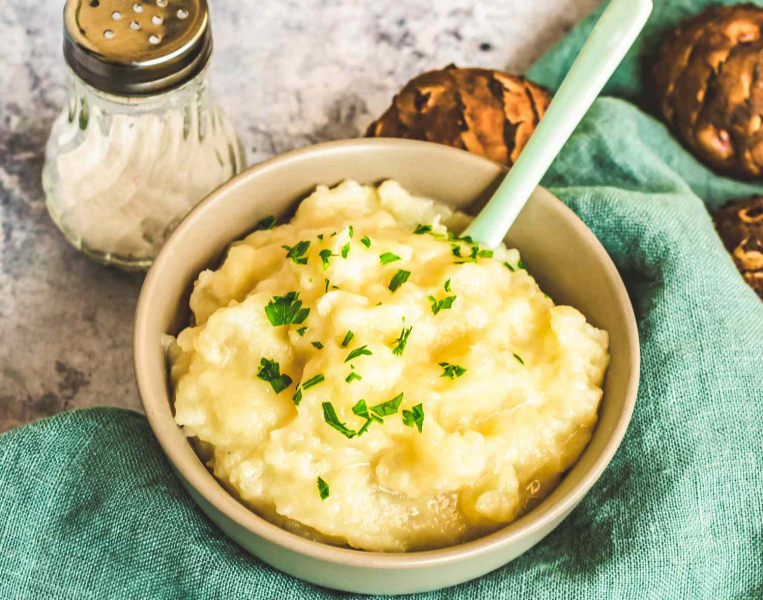
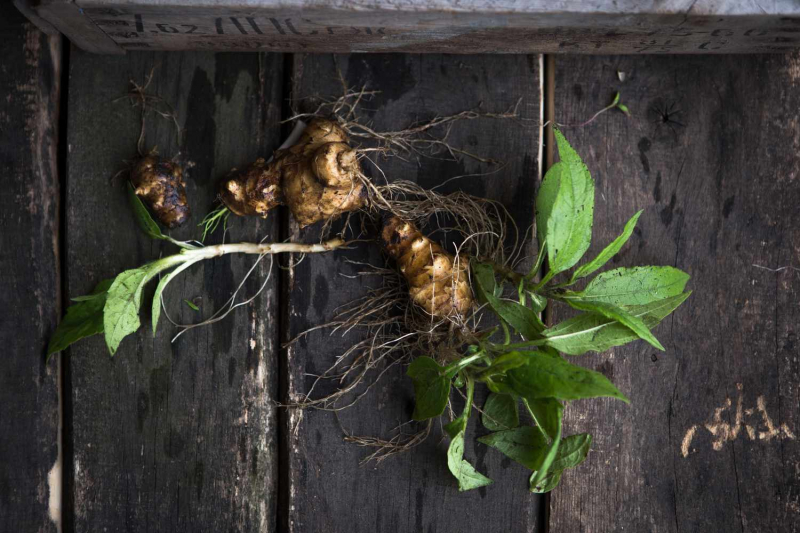
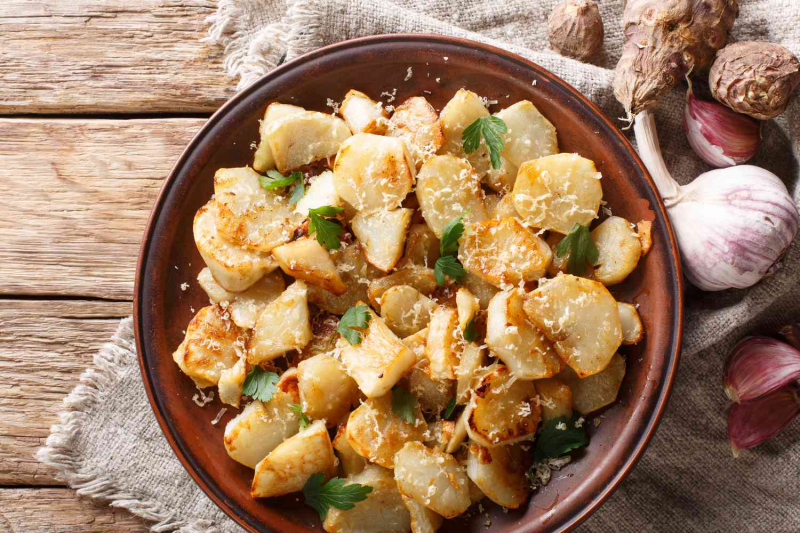
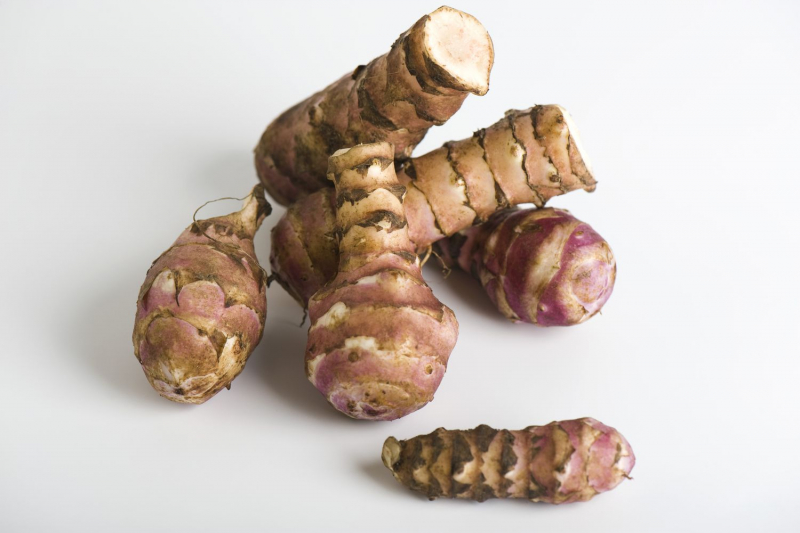
What Do Jerusalem Artichokes Taste Like?
A Jerusalem artichoke offers a flavor that's a cross between a water chestnut and a potato. It's kind of watery but has a sweet starchiness, as well. The texture of a Jerusalem artichoke crunches like a water chestnut too, though when cooked it gets creamy and slightly floral. While sweeter than a potato, there's nothing saccharine about this vegetable.
Jerusalem Artichokes Recipes
Use Jerusalem artichokes much like you would a potato, by roasting, turning into a cheesy gratin, and whipping up into a side dish.
- Sunchoke Gratin
- Ravioli with Scampi Tartare and Jerusalem Artichokes
- Recipe for Great Roasted Vegetables
Where To Buy Jerusalem Artichokes
It’s not easy to source Jerusalem artichokes, they’re a seasonal item that isn’t grown on a large scale compared to other popular vegetables. The best bet is to search for this tuber in season, which starts in early spring and can run until the cooler months. Some say the Jerusalem artichoke is best harvested in winter, so those sugars become more solidified, but it’s rare to find this ingredient at that time. Another option for sourcing Jerusalem artichokes is online through specialty grocers or grow them yourself. After all, the plant is native to North America.
Storage
Don't wash Jerusalem artichokes until ready to use. The skin is thin, and if it's wet it can mold. Otherwise, keep this ingredient much like you would any other root, in a cool, dry spot out of direct sunlight. If stored this way, Jerusalem artichokes will last for months. They also will stay fresh loose in the refrigerator, though check them for dehydration after a couple of weeks. Once Jerusalem artichokes have been washed and cut, they will stay good in a sealed container for a few days to a couple of weeks.
Varieties
All Jerusalem artichokes come from the garden sunflower, a plant with a delicate, bright yellow flower that looks a lot like a daisy or brown-eyed Susan. There are dozens of cultivars of this plant, though there's not much difference in the taste and nutrition. Some look whiter while Jerusalem artichokes have a pink or brown hue. You will see this ingredient also under the names sunchoke, earth apple, topinambur and sunroot, which are all the same basic plant. The cultivars may have special names, but none are well known.
Myths
Jerusalem artichokes are neither from Jerusalem nor an artichoke. It's also not a starchy root, it's a rhizome filled with inulin instead.
